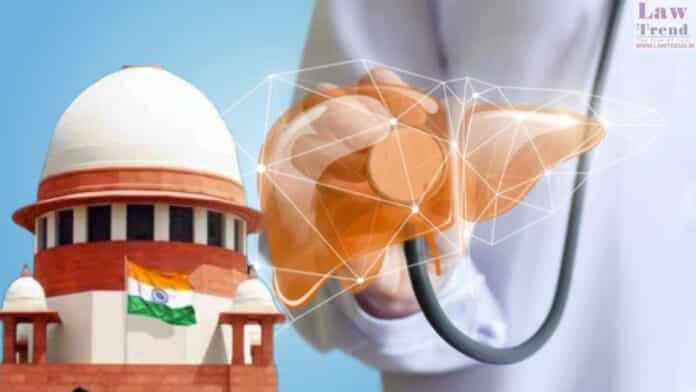The Supreme Court on Wednesday laid down an extensive set of directions to overhaul India’s organ donation and allocation framework, calling for a uniform, transparent, and equitable national system. A bench led by Chief Justice BR Gavai, sitting with Justice K Vinod Chandran, issued the directions while hearing a PIL by the Indian Society of Organ Transplantation.
The bench directed the Union government to frame a national policy containing “model allocation criteria” for organ transplants. The policy must eliminate state-wise discrepancies and ensure uniform criteria for donors across the country.
The court emphasised that the new framework must directly address gender- and caste-based disparities that affect access to organ transplantation.
The court noted that several states have not adopted key amendments and rules governing organ transplantation.
- Andhra Pradesh has yet to adopt the 2011 amendments to the Transplantation of Human Organs Act, 1994. The CJI requested the Centre to persuade the state to do so.
- Karnataka, Tamil Nadu and Manipur have not adopted the Transplantation of Human Organs and Tissues Rules, 2014. The court asked the Centre to ensure these states implement the rules expeditiously, given the “importance of the issue.”
Highlighting glaring administrative gaps, the bench pointed out that Manipur, Nagaland, Andaman and Nicobar Islands, and Lakshadweep still do not have State Organ and Tissue Transplant Organisations (SOTOs).
The Centre has been directed to establish these bodies under the National Organ Transplantation Programme after consulting the respective states.
The court expressed concern over the vulnerability of live donors and asked the Centre to frame welfare guidelines to prevent exploitation and commercialisation. These guidelines must ensure proper post-donation care and safeguards.
To strengthen the process around cadaver donation, the bench asked the Centre—working with NOTTO—to amend Forms 4 and 4A (used for death registration) so they clearly record:
- whether the death was a brain death, and
- whether the family was offered the option of donating organs.
Senior advocate K Parmeswar, for the petitioner-society, argued that several states continue operating under their own transplant laws, leading to fragmentation and delays.
He also highlighted that India still lacks a consolidated national database of donors and recipients, calling it “alarming.” According to him, organ transplants remain accessible mainly to privileged sections, with class and gender disparities deepening inequality.
He added that nearly 90% of all transplants occur in private hospitals, while public hospitals remain largely absent from donor registries.
On April 21, the Supreme Court had already asked the Centre to convene a meeting of chief secretaries and health secretaries of all states and UTs and collect detailed data on:
- adoption of the 1994 Act, 2011 amendment and 2014 rules
- compliance with NOTTO guidelines
- cadaver vs live donor ratios
- gender disparities
- awareness and outreach
- financial assistance
- swap transplantation policies
- organ allocation processes
- facilities for single and multi-organ transplants
The consolidated report is due on July 18, 2025.
With Wednesday’s directions, the court signalled that organ transplantation in India cannot continue under a patchwork of rules and uneven access, and must now move towards a unified, rights-based national system.




